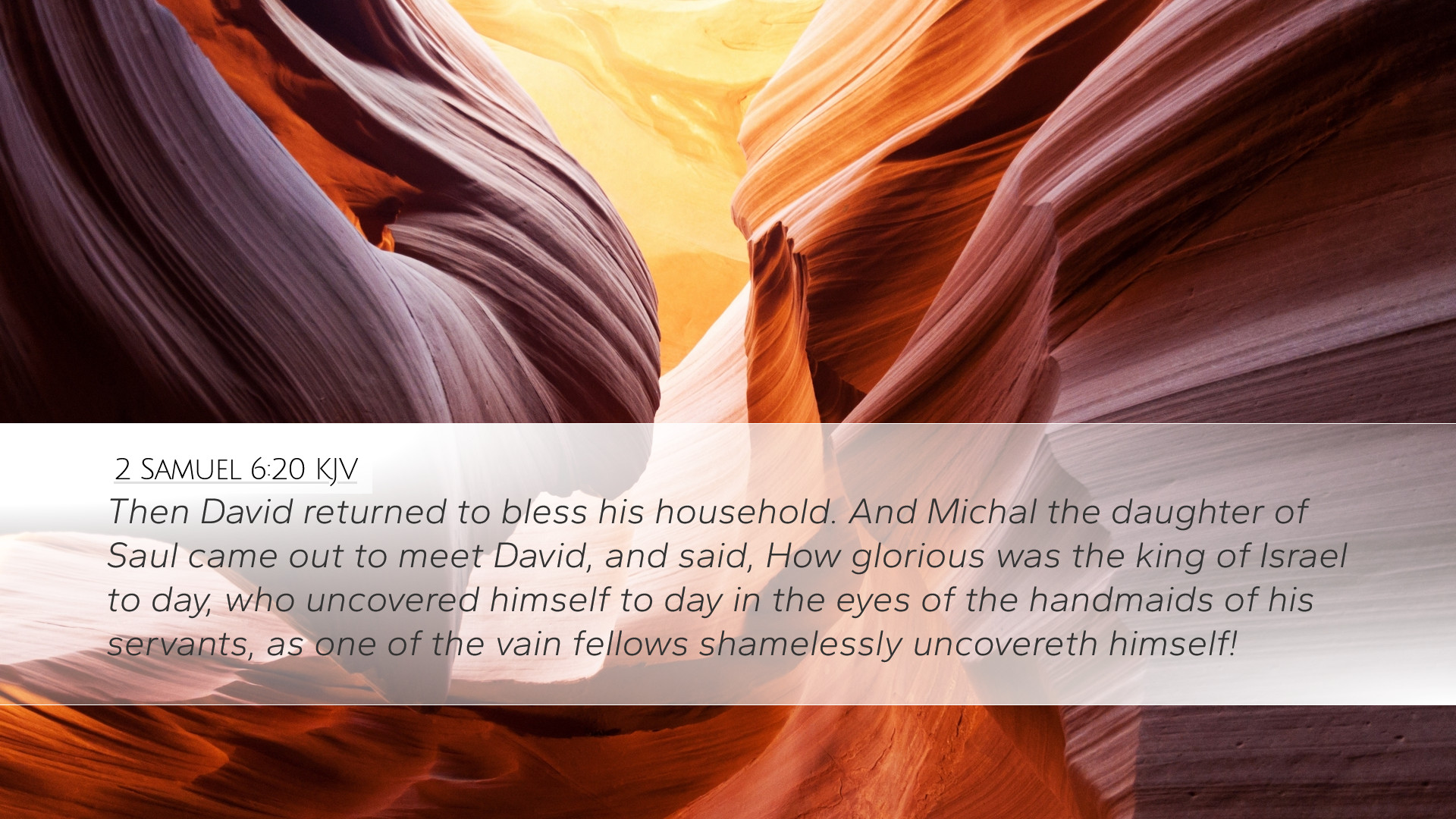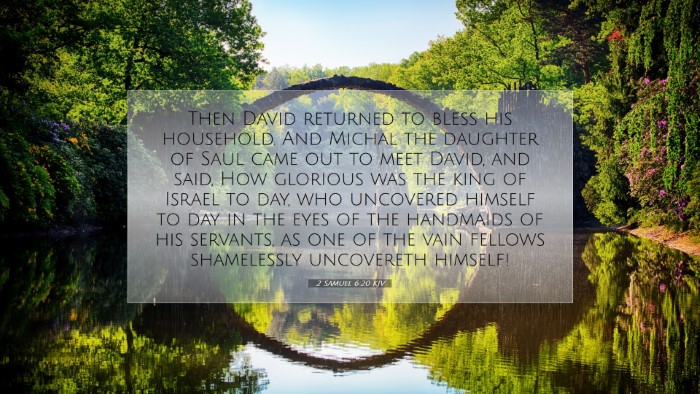Commentary on 2 Samuel 6:20
Bible Verse: "Then David returned to bless his household. And Michal the daughter of Saul came out to meet David, and said, 'How glorious was the king of Israel today, uncovering himself today in the eyes of the maids of his servants, as one of the base fellows shamelessly uncovers himself!'" (2 Samuel 6:20)
Introduction
This passage occurs in a pivotal moment during King David's reign, marking the return of the Ark of the Covenant to Jerusalem. This event is filled with both joy and tension, particularly highlighted by the interactions between David and Michal. Understanding this moment requires a deep dive into the character dynamics, the significance of praise, and societal expectations of the time. Here, we will synthesize insights from respected commentaries to reflect on the implications of this verse for contemporary theology.
Contextual Significance
1. The Ark's Return: The backdrop of this passage is significant. The Ark had great religious and national importance, representing God's presence among His people. David’s joyful dance (as noted in verses prior) signifies not only a personal response but also a national celebration of God’s covenant with Israel.
2. Cultural Implications: David’s dancing was a public expression of joy. Matthew Henry notes David's disregard for royal dignity in external worship, suggesting that his heart was aligned with the spirit of worship rather than the formality typically associated with kings.
Character Analysis
1. David: As king, David embodies a unique blend of authority and humility. Albert Barnes emphasizes that David’s actions were out of a deep desire to honor God. His willingness to "uncover" himself—though not in an immoral sense—shows an abandonment to joy in divine worship.
2. Michal: Michal’s response depicts a contrast to David’s celebratory spirit. Adam Clarke presents her as a frustrated figure, reflecting the societal norms that expected a king to maintain a certain decorum. Her scorn highlights a tension between personal expression of faith and public perception.
Theological Themes
- The Nature of Worship: This passage challenges the modern conception of worship. True worship can sometimes contradict societal expectations. Michal’s criticism underscores the challenge believers face when worshiping authentically in the face of disapproval.
- Pride vs. Humility: David’s humility in worship contrasts starkly with Michal’s pride and pretension. Matthew Henry argues that genuine worship stems from humility—recognizing God’s greatness over personal dignity.
- The Role of Women: Michal's position offers a discourse on women in biblical narratives. While she critiques David, her role also reflects the limited agency available to women in her time, a theme explored extensively in many commentaries.
Lessons for Today
This passage is foundational for both personal and communal worship practices today.
- Authenticity in Worship: David models for us a heart that prioritizes sincere worship over societal norms, a vital lesson for churches striving to embrace authentic worship experiences.
- Balancing Roles: The dynamics between David and Michal can prompt discussions about contemporary gender roles in the church, as well as the balance between personal expression and community norms.
Conclusion
In exploring 2 Samuel 6:20, we encounter a rich tapestry of worship, identity, and societal expectation. The interplay between David and Michal serves as a reminder that while our expressions of faith may invite scrutiny, the call to worship God wholeheartedly remains paramount. Commentators like Matthew Henry, Albert Barnes, and Adam Clarke enrich our understanding by drawing us toward the core message of humility, authenticity, and the transformative power of divine worship.


